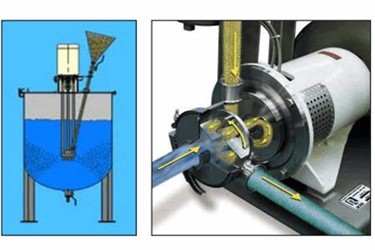Mixing Technologies In The Pharmaceutical And Medical Industries
By Christine Banaszek

Process equipment used in the healthcare industry follow rigid specifications for accuracy, consistency and cleanliness. These regulations ensure that end products are safe, pure, and effective. In particular, mixing equipment employed in the production of pharmaceuticals and medical devices deal with a higher level of complexity because their use is more specialized. Not one design fits all.
Mixing fulfills many objectives beyond simple combination of raw ingredients. These include preparing fine emulsions, reducing particle size, carrying out chemical reactions, manipulating rheology, dissolving components, facilitating heat transfer, etc. So even within a single pharmaceutical product line, it is not uncommon to employ a number of different style mixers to process raw ingredients, handle intermediates and prepare the finished product.
Moreover, most pharmaceuticals are highly process-dependent. Next to the chemistry of the formulation itself, the mixing operation has a decided influence on whether a drug will deliver the accurate dosage, have an acceptable appearance and texture, or be stable for the appropriate length of time. The importance of proper mixer selection and optimal operation can hardly be over-estimated.
Get unlimited access to:
Enter your credentials below to log in. Not yet a member of Pharmaceutical Online? Subscribe today.
